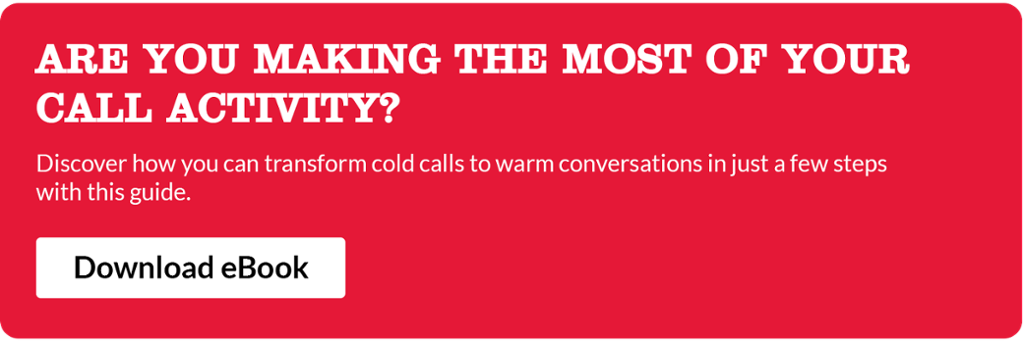We've all had those days where you question if you're any good at the "sales" part of recruitment. Call after call and you're still getting nowhere. You begin to wonder what you're doing and wishing the work day would end. If you find yourself struggling with your BD calls, read on. I'll explore 4 reasons why clients tune out during prospecting calls.
1. You Talk Too Much
You may be thinking, "So what if I talk too much? I have a great service to sell and I know my stuff. Isn't it important for my prospects to know what I know so they can understand what I can do for them?"
Perhaps, but here's what you miss when you do too much of the talking:
Rapport Building: It's a cliche but people do tend to buy from people they like. They listen to people they like. They take advice from people they like. If you're doing all the talking, you'll miss the signals that indicate what's important to the prospect and you'll miss out on an opportunity to build rapport.
Uncovering Needs: When you enter initial sales conversations, you'll have a strong knowledge of what you can do for your prospects, but understandably only a vague notion of what the prospect truly needs. If you're doing all the talking, you can only guess which of your services will have the greatest value for that particular prospect.
Advertising You: What better way to engage potential clients than to have them experience what it is truly like to have you as their trusted advisor. When you listen, you show interest in a client's issues, and by asking insightful questions, you'll provide them with a glimpse into the real you.
Actionable Tip: Sometimes less is more. If you find yourself talking "at" someone for more than 20 seconds, it's not a conversation. Never talk for more than 20 seconds at a time on an initial call. Conversations need to be two sided.
2. You're Asking Rubbish Questions
Never ask a question just for the sake of asking a question so your call is "interactive". Silence is not a bad thing when it comes to sales. Don't use filler questions. If you do, you risk quickly losing their patience. Broad, relevant, open-ended questions are great for finding out what's going on in a prospect's business.
Don't forget that the most powerful sales conversations tend to balance inquiry (asking questions) with advocacy (talking, educating, giving advice).
Actionable Tip: If the prospect answers a question and you want them to expand further, ask them, "How so?" Or, "Can you tell me a little more about that?" You'll be surprised at just how much you learn, and the difference it makes in your ability to help them succeed.
3. You Try to Be Their Best Friend
Many times, you will talk to a prospect like they're your best friend right out of the gate. However, there's a fine line between trying to build rapport, and hiding the fact you're a recruiter. When prospects pick up the phone and hear overly familiar language on the other end of the line, they often conclude that they must know the person and they start racking their brain to call up the relationship. But when they realise you're a recruiter they've never talked to before? They get angry and hang up.
Actionable Tip: Recognise the difference between friendly and familiar; between "Hi, Tom" and "What's up, mate?" Don't speak to a prospect you've never talked to before like you've known each other for 20 years. This type of informal language with a buyer can be a real turn off and is often seen as sneaky rather than smart.
4. You Sound Scripted
I didn't write "using a script". Sounding like you're reading a script is certain death for a business development call. When you sound like you're reading from a script, you don't treat prospects as individuals and your own credibility takes a hit. If a prospect feels like they're talking to a robot, they won't feel bad hanging up the phone.
Actionable Tips: Lower your tone. Oftentimes, recruiters will start their calls with an unnaturally high pitch. Although you might think you’re conveying excitement, prospects come to a different conclusion – you’re being fake. Speak in your natural tone for the entire duration of the call.
Slow down (hard for me, being Scottish!). Fast talking can signal a scripted approach, and the faster you speak, the more likely it is that the prospect will hang up. Instead of trying to cram everything into a few seconds, slow down. And remember to pause throughout your call. Pauses prevent the knee-jerk reaction of a hang-up and also indicate that you’re truly engaged in the conversation.
The next time your cold calling efforts prove fruitless, take 5, recompose, and focus on the basics. Do the simple things well and results will follow! BD time is a time to look forward to rather than dread. If you master this and change your mindset to one that relishes the challenge, you’ll exceed quotas, make more money and help more talented people into jobs.
If you want to start warming up your business development calls, our eBook has everything you need to know to get started:
Cameron McLennan
Cameron McLennan works within recruitment technology industry. Outside of work, he loves spending time with his family and playing golf.



